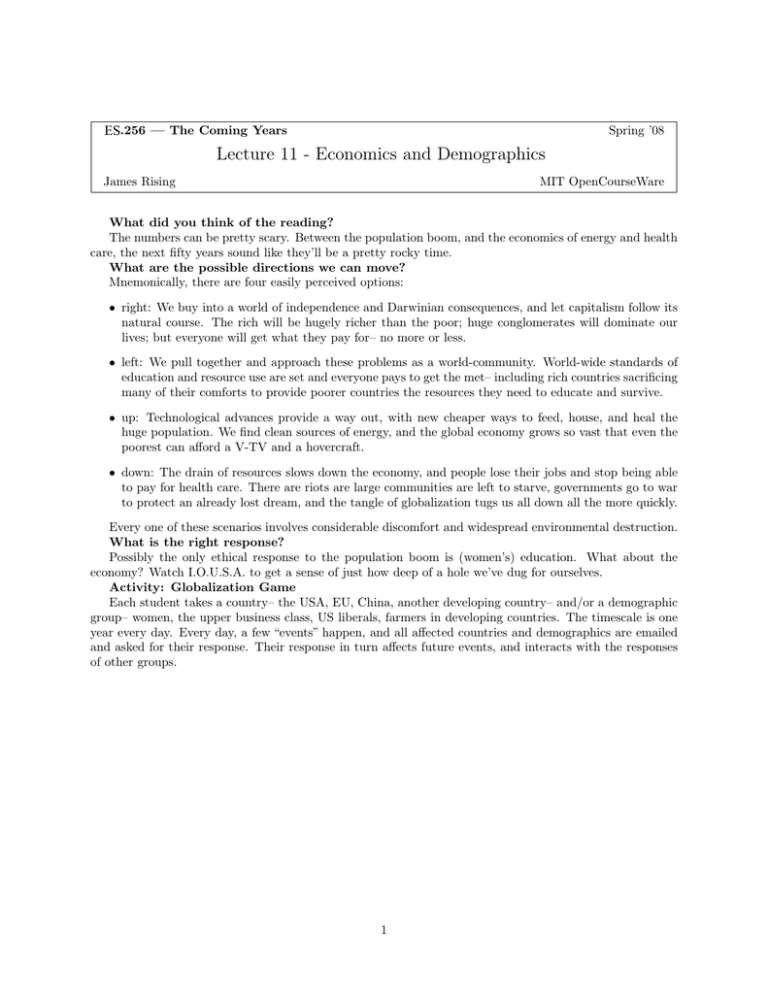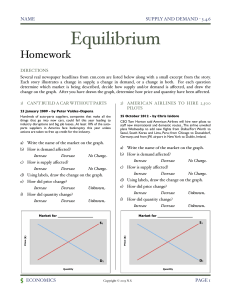Lecture 11 - Economics and Demographics ES
advertisement

ES.256 — The Coming Years Spring ’08 Lecture 11 - Economics and Demographics James Rising MIT OpenCourseWare What did you think of the reading? The numbers can be pretty scary. Between the population boom, and the economics of energy and health care, the next fifty years sound like they’ll be a pretty rocky time. What are the possible directions we can move? Mnemonically, there are four easily perceived options: • right: We buy into a world of independence and Darwinian consequences, and let capitalism follow its natural course. The rich will be hugely richer than the poor; huge conglomerates will dominate our lives; but everyone will get what they pay for– no more or less. • left: We pull together and approach these problems as a world-community. World-wide standards of education and resource use are set and everyone pays to get the met– including rich countries sacrificing many of their comforts to provide poorer countries the resources they need to educate and survive. • up: Technological advances provide a way out, with new cheaper ways to feed, house, and heal the huge population. We find clean sources of energy, and the global economy grows so vast that even the poorest can afford a V-TV and a hovercraft. • down: The drain of resources slows down the economy, and people lose their jobs and stop being able to pay for health care. There are riots are large communities are left to starve, governments go to war to protect an already lost dream, and the tangle of globalization tugs us all down all the more quickly. Every one of these scenarios involves considerable discomfort and widespread environmental destruction. What is the right response? Possibly the only ethical response to the population boom is (women’s) education. What about the economy? Watch I.O.U.S.A. to get a sense of just how deep of a hole we’ve dug for ourselves. Activity: Globalization Game Each student takes a country– the USA, EU, China, another developing country– and/or a demographic group– women, the upper business class, US liberals, farmers in developing countries. The timescale is one year every day. Every day, a few “events” happen, and all affected countries and demographics are emailed and asked for their response. Their response in turn affects future events, and interacts with the responses of other groups. 1 MIT OpenCourseWare http://ocw.mit.edu ES.256 The Coming Years Spring 2008 For information about citing these materials or our Terms of Use, visit: http://ocw.mit.edu/terms.



